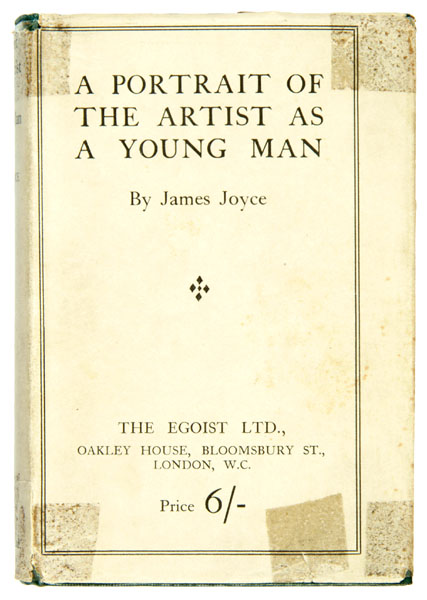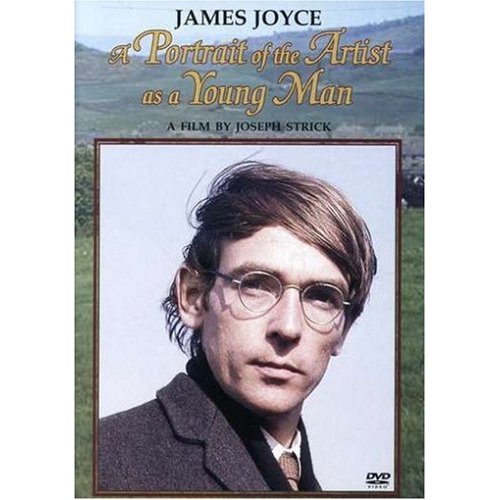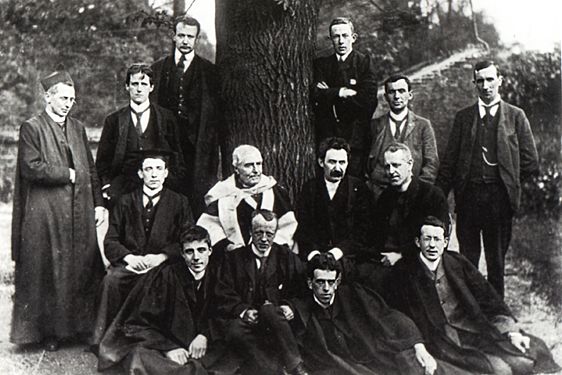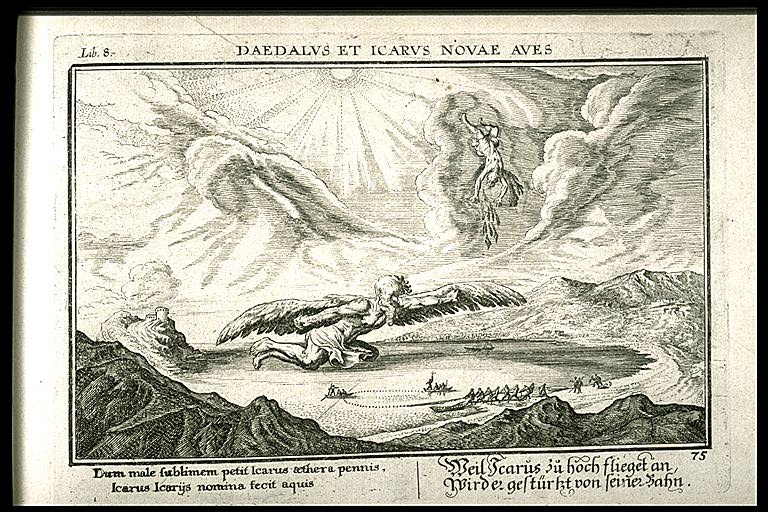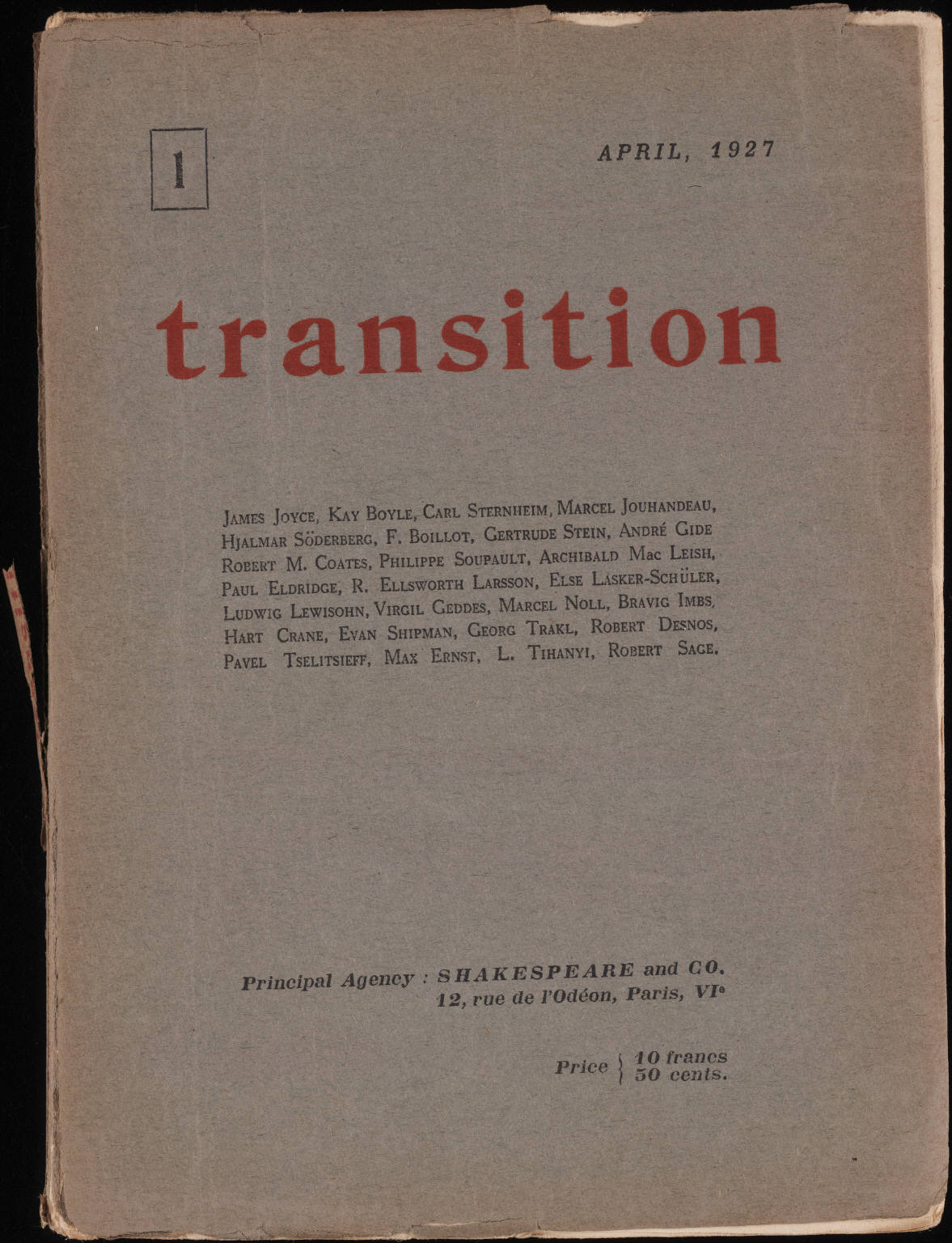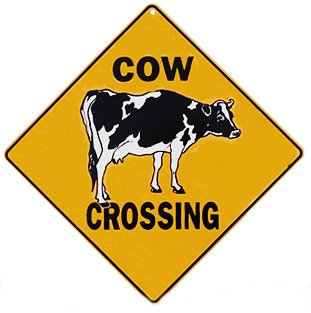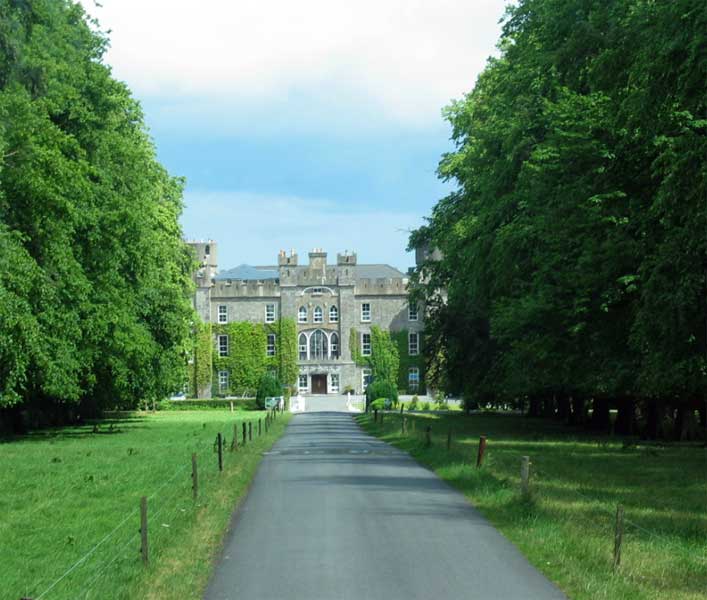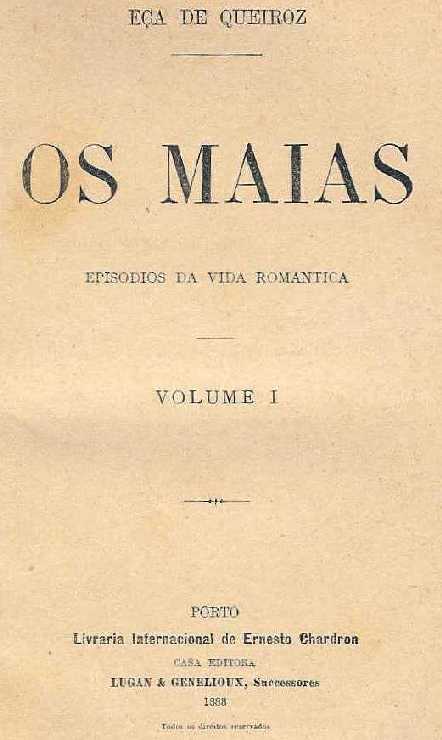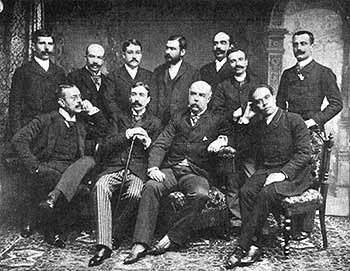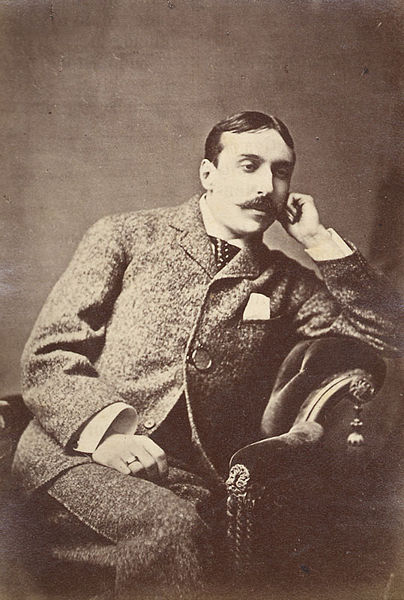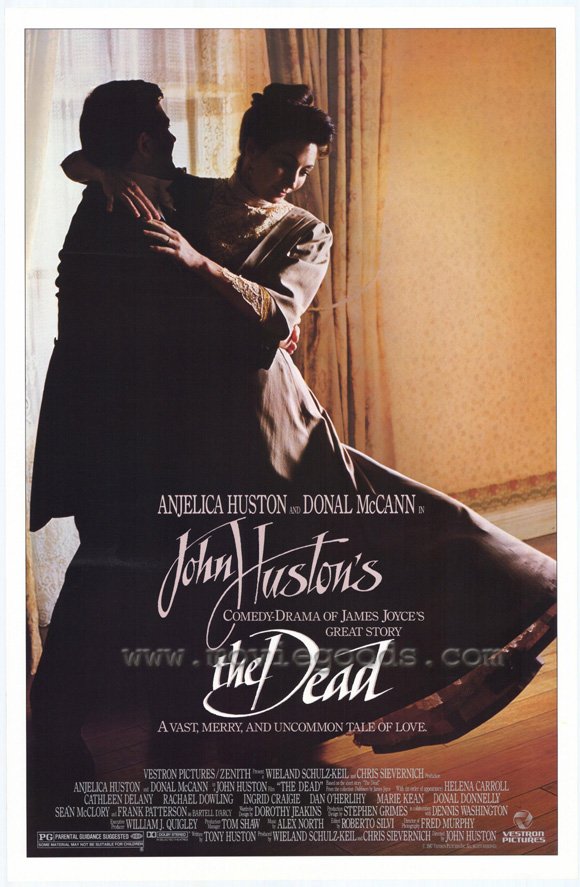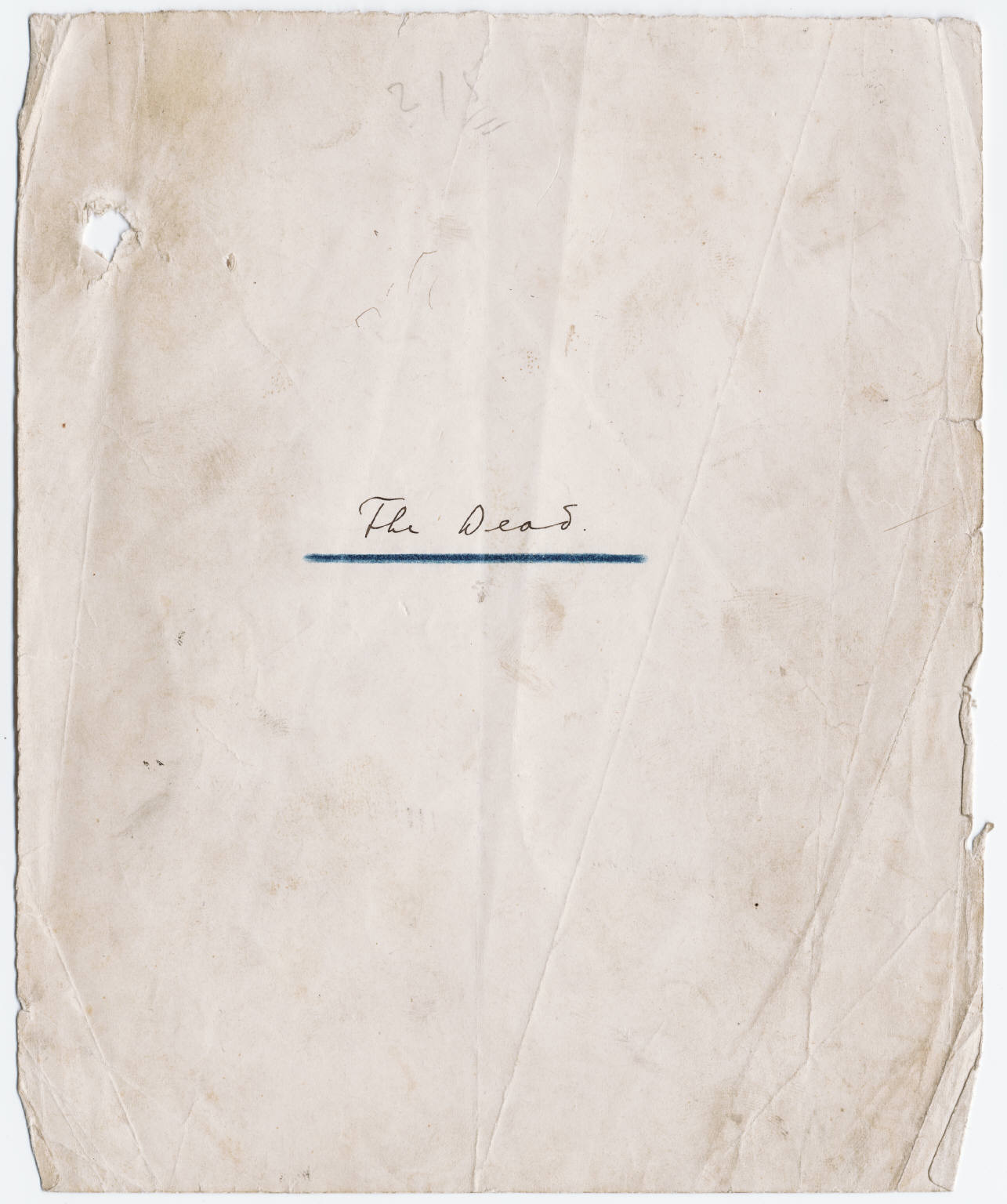It is easy to see why there has been so much written about Portrait. The amount of different things happening is staggering and the discussion linked below only scratches the surface. Still, it’s a starting point and an enjoyable first encounter with the book. A Portrait of the Artist as a Young Man posts: Online […]
Author: Dwight
The IMDB page for the movie found here. I didn’t know what to expect from a movie version of the book. How do you portray everything that happened internally? Internal discourse can be done as a voiceover, but there is so much more happening inside Stephen than just thoughts. Despite some large lapses and omissions, […]
Of all the alienations, the most painful estrangement for me was Stephen’s distance from his family. Comparing Simon Dedalus’ attitude and actions toward his son at the start of Chapter 5 with their train trip in Chapter 2 (as well as trying to pull strings for him in Chapter 4) highlights the distance between the […]
Chapter 4 begins with Stephen’s religious discipline. One comment I saw for this section is that the language Joyce uses in this section is dry, but the change I notice more is the lack of sensual descriptions (with a few exceptions, made notable because of the lack everywhere else), especially compared to the first two […]
I finished the book a while ago but have been too busy to write. So going from memory on what I read a couple of weeks ago… The retreat in honor of St. Francis Xavier takes up the bulk of this chapter. As the book progresses, previous events are directly or indirectly echoed while additional […]
This chapter reflects much change in and around Stephen, with much of the change for the worst. Many of the things around Stephen show decline: Uncle Charles becomes senile or Stephen’s family encounters financial troubles, for example. Even something simple, like the description of coach Mike Flynn as a long way from being a famous […]
Once upon a time and a very good time it was there was a moocow coming down along the road… Sign from cowdepot.com My comments on Joyce’s work will obviously pale in comparison to the library shelves groaning with books and dissertations analyzing everything down to the punctuation, but writing a post on what I […]
Source A few online resources for the next book on my list (many, alas, have fallen to web erosion over time and have been deleted). I listed a few general resources on James Joyce in this post A Portrait of the Artist as a Young Man text at Project Gutenberg There are numerous audible versions […]
I finally got a chance to see the recent adaptation of Jane Austen’s Northanger Abbey and I wanted to add a note since I had reviewed the 1986 version. I just noticed that I had originally commented on the (then) upcoming version and hoped that it would succeed…and indeed it did. My comments have to […]
I found George Orwell’s essay on Rudyard Kipling recently. It appears Orwell was responding to a T.S. Eliot essay that prefaced selections of Kipling’s poetry as well as an essay by Edmund Wilson. While much of the review is about the poetry itself (Orwell’s take in a nutshell—third-rate, but a guilty pleasure that speaks to […]
A summary of the posts on The Maias by Eça de Queirós, as well as some additional notes. José Maria Eça de Queirós online resources The Maias: resources The Maias discussion: Chapters 1 – 6 The Maias discussion: Chapters 7 – 10 The Maias discussion: Chapters 11 – 14 The Maias discussion: Chapters 15 – […]
Os Vencidos da Vida (Those Defeated by Life)Eça de Queirós in front row with walking stickPhoto from www.arqnet.pt The end of the book comes with mixed feelings: satisfaction from reading such a wonderful novel, dissatisfaction with many characters that cannot develop, and reevaluation of everything that has happened to date. The generational differences are still […]
The melodrama continues… The plot of The Maias is rather thin, standard soap opera fare, but the richness of the telling is the reason to read the book. Not just the characters, but 1880s Portugal comes to life. The relationships between the male characters develop and seem truer to life than most novels. Rarely do […]
One thing that stood out for me in this section is the use of parallels or comparisons, where events echo a previous occurrence or current situation. Some examples: Carlos’ first viewing of Maria Eduara Gomes echoes that of his father, Pedro, seeing Maria Monforte for the first time. Not only their reaction, but their language […]
Eça de Queirós’ novel is a chronicle of the Maia family and, to some extent, of Portugal in the 19th century. While I’m only a quarter of the way through the book, it reminds me of a Benito Pérez Galdós novel I’ve read (which is a good thing). The first six chapters give a quick […]
I started reading The Maias and quickly found myself lost during references to Portuguese history. I’m sure I will find more things I’m ignorant about, but for starters here are a few links that help make sense of the background events in the book: Portuguese history: Fourth Dynasty (1640 – 1910) at Wikipedia More detail […]
I decided I needed a break from the Modernism kick I’ve been on and decided to read The Maias by José Maria Eça de Queirós. I wanted to find some resources online to flesh out what little I know about the book and the author. Eça de Queirós Wikipedia entry The Maias was recently translated […]
Quick links to the posts on Dubliners: A few links to online resources about James Joyce Online text of Dubliners at Project Gutenberg Dubliners discussion: The Sisters, An Encounter, Araby, Eveline, After the Race, Two Gallants Dubliners discussion: The Boarding House, A Little Cloud, Counterparts, Clay, A Painful Case Dubliners discussion: Ivy Day in the […]
One of the best adaptations from page to screen I’ve seen. You definitely have to be in the mood for a period piece, but the acting is superb. There are a few minor changes from the story, mostly in the way of additions, but the movie stays true. In moving the story to the screen, […]
This was my first exposure to “The Dead” and I found it quite powerful and moving. So far in Dubliners there has been much bitterness and frustration with only glimpses of the humanity underneath. In “The Dead,” the emphasis has been reversed. Since it would be easy to write a piece as long as the […]
